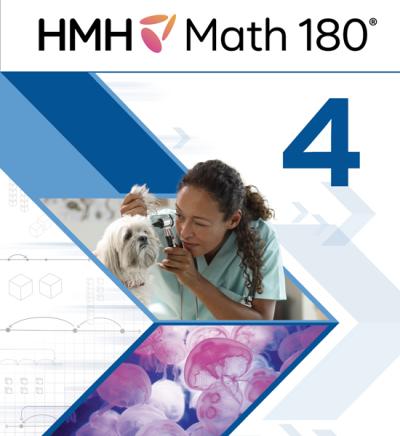Evaluation for 4.3b
Materials provide interleaved practice opportunities with previously learned skills and concepts across learning pathways.
The "Fraction Series Teaching Guide"provides a "Block at a Glance" for each block in aseries. The "Block at a Glance" is a visual map of the lessons within the three Topics, with an example of the strategy students are introduced to in each lesson. In grade 4, the mSpace lessons provide various strategies for equivalent fractions, including fraction pieces, equations, and inequalities. Through the learning progression, students learn more than one strategy to solve equivalent fraction problems and engage in problem sets that require understanding word problems to plan whether to use an appropriate strategy.In theMath 180"Fraction Series," the exit ticket provides students with a visual of fraction bars used to create equivalent fractions to 1. As part of the dice game, the teacher asks students, "What do you hope you roll next?" The activity draws on previously learned knowledge of fraction bars and how a whole can be decomposed in different ways.In eachseries, students can complete aCard Sort, which provides interleaved practice. For example, in Card Sort: "Fraction Relationships," students sort fractions based on their common denominators, and then must identify the category.TheProgram Guideexplains the purpose behind each segment of theMath 180materials. These explanations explicitly identify the use of previously taught concepts. TheDo Nowis designed to engage students at the start of each lesson. These activities involve quick, focused tasks that help students review previous concepts and prepare for new learning. Conceptlessons are where students connect previously learned concepts, build new understandings, and acquire skills. Lessons are designed to build students' conceptual understanding of math. Problem-Solving lessons are in allblocks. Students apply conceptual knowledge to new problems through multi-step and contextualized problems, allowing them to interpret, analyze, and evaluate mathematical concepts and complex, real-world situations. Gamelessons, with two or three games perblock, students engage in collaborative practice to help build fluency and flexibility with learning objectives from Concept lessons.

